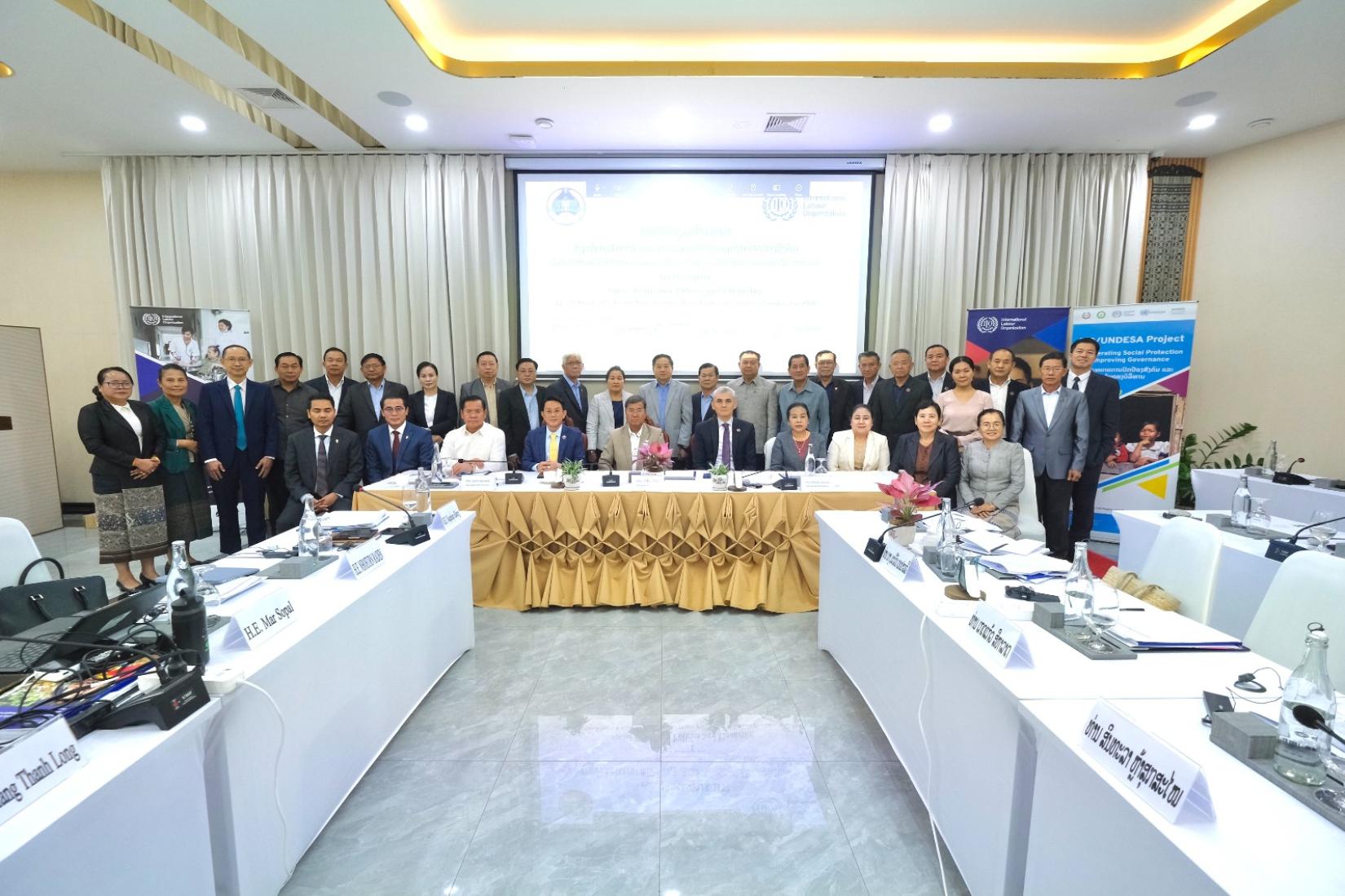Remarks at Workshop on Social and Health Protection Policies and Financing for High-Level Officials of the National Assembly, Prime Minister’s Office, Ministries and Provincial Assemblies
Remarks by Bakhodir Burkhanov, UN Resident Coordinator

H.E. Khambay Damlath, Vice-President of the National Assembly
H.E. Bounta Thepphavong, Chairman of Cultural and Social Affairs Committee of the National Assembly
Excellencies Ministers and Vice-Ministers
Presidents of Provincial Assemblies
Ladies and gentlemen:
It is an honour to be here today at this important gathering to advance social protection and health protection in Lao PDR. This meeting serves as a critical platform for dialogue, allowing us to collectively strengthen social and health protection systems.
I extend my gratitude to the National Assembly for organizing this meeting and to all stakeholders present, including representatives from Provincial Assemblies, line ministries, civil society and development partners. I also wish to recognize the role of international partners, particularly the ILO and the Government of Luxembourg, whose continued support has been instrumental in advancing social protection and universal health coverage in Lao PDR.
Social protection and jobs are one of the six key SDG transitions. That means it is a known accelerator for development across the board. It plays a significant role in advancing progress across several SDG targets such as 1.3 (social protection), 3.8 (universal health coverage), 5.1 (gender equality), 8.5 (decent work), and 10.4 (policies for greater equality). Initiated by the UN Secretary-General in September 2021, the Global Accelerator on Jobs and Social Protection for Just Transitions underscores the UN System’s collective commitment to supporting nations in expanding social protection and fostering decent employment opportunities.
The United Nations Country Team in Lao PDR brings UN agencies working on social protection together under the UN Sustainable Development Cooperation Framework 2022-2026. These efforts are fully aligned with the Government’s national priorities and the 9th Socio-Economic Development Plan, and we have been a proud partner of the Government in the formulation of the National Social Protection Strategy and related initiatives.
Social protection is a fundamental pillar of national development, directly contributing to poverty reduction, health equity, and social inclusion. The National Social Protection Strategy envisions a system where all Lao people have access to adequate and sustainable health and social security services by 2030, through the three pillars: social security, health insurance and social welfare.
Lao PDR has made significant progress in expanding social health protection, with 94% of the population covered under the National Health Insurance (NHI) scheme. However, coverage of the Lao Social Security Organization remains low at around 11%. Many enterprises, especially SMEs, do not comply and enrol in the social security scheme. Among informal workers, just over 1% are covered, while most are not aware of the scheme. Social welfare programmes are largely funded from external sources and leave out many vulnerable people.
Furthermore, despite large population coverage, the NHI faces considerable challenges in ensuring financial sustainability. One of the most pressing challenges is the underfunding of the National Health Insurance scheme. Adequate public financial resources are needed to ensure the sustainability of NHI, to protect the population of Lao PDR from impoverishing health expenditures and to ensure quality of health care services. Overall, Lao PDR’s public spending on social protection is 1.6% of GDP – significantly lower than regional and global standards.
Global evidence shows that investing in social protection and health protection yields high returns, fostering economic productivity, reducing poverty, and enhancing resilience against health and economic shocks. Investing in social protection and health protection should be seen as an
investment in the prosperity and resilience of Lao PDR, rather than merely an expenditure. It strengthens human capital, fosters economic growth, and enhances overall national development.
It is particularly important now when Lao PDR experiences a period of demographic dividend, when investing in social and health protection will generate highest rewards for the national economy and people’s well-being for generations to come. Also, a robust social protection system is a smart investment for Laos as it aspires to graduate from the list of Least Developed Countries.
The National Assembly plays a pivotal role in ensuring the sustainability of social protection and health protection through strong legal and policy frameworks, and parliamentary oversight. This meeting provides an opportunity to discuss policy reforms, determine how laws could align with international standards and best practices, and ensure coherence between health insurance and social security policies. Engaging tripartite partners—government, employers and workers—in decision-making will help strengthen the system’s legitimacy and effectiveness.
I am confident that today’s discussions will yield practical discussions aimed at strengthening social protection and health protection in Lao PDR.
The UN Country Team is fully committed to supporting Lao PDR in achieving universal social protection and universal health coverage. On behalf of the United Nations, I would like to reaffirm our commitment to working closely with the National Assembly, Government, social partners and development agencies to ensure that no one is left behind in our collective pursuit of inclusive socio-economic development.
In conclusion, let me once again extend my sincere appreciation to all participants for your dedication and contributions toward advancing universal health coverage and social protection in Lao PDR.
I wish you successful deliberations.
Thank you.


